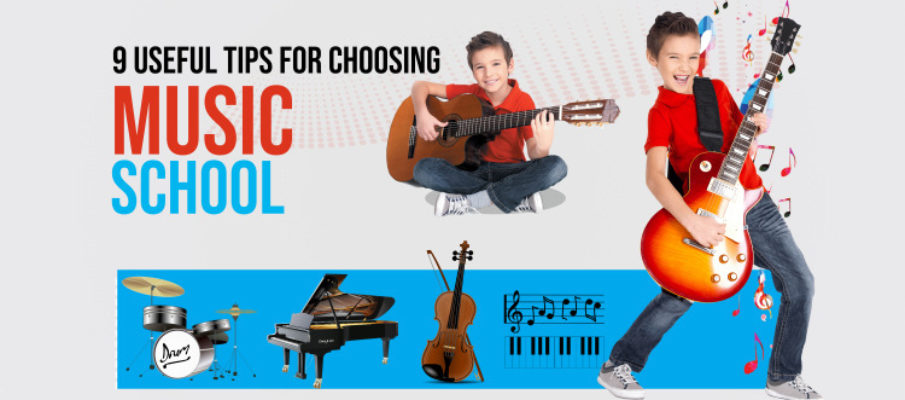Do you want to go to a music school but aren’t sure which one to go to? If you said yes, you’ve arrived to the right site to learn about the factors to consider while choosing a music school. There should ideally be multiple music colleges, and selecting the right one can be difficult. You’ve taken the first major step toward becoming a real musician. You’ve picked which instrument you want to learn, and now it’s time to choose the right music school for you.There are numerous alternatives, and the experience can be tough, but it feels fantastic when you find the ideal teacher! While this may seem intimidating, we want to show you how simple and effective searching can be.
It is critical to remember that the music school you select will have a long-term impact on your musical career.
Here are some things to think about when selecting a music school.
1. Take into account the school’s location.
The location is one of the most important elements to consider while selecting a music institution. You should think about how the location of the college you want to attend will effect your music career and your time there. Most artists and students prefer to enroll in a music school near a metropolis where they can make many connections with other musicians. As a result, make sure you do your homework and pick the greatest music cities for your needs.
2. What Programs are Offered?
Because the music industry is so vast, you’ll need to specialise in some areas. If you’re interested in music production, for example, stay away from music schools that only offer instrument-based programmes. Also, be sure your passion isn’t channeled into a music curriculum that isn’t a good fit for you. Choose a school that offers the music programs you require.
Remember to ask yourself if you want a certificate. Do you want a diploma or a degree? Is a bachelor’s degree or an associate’s degree your preference if you desire a degree?
Knowing these details can help you decide how long you want to spend in music school.
Music Schools: What Should You Ask
Before enrolling, you will usually take a tour of the campus or attend an open house. Here’s a handful of excellent questions to ponder:
- What are the needed classes/courses for graduation?
- What programmes are available?
- What information/documents will you need to submit your application?
- How does the audition procedure work?
- Do you have the option to test out of any classes or courses?
- What level of ability is required to enter the music school?
- Is there any financial assistance available?
- Is there any on-campus housing?
- What opportunities does your facility present in particular?
- What is the average number of students in each class?
3. Music Recitals are held at the best music schools.
When it comes to rewards, we consider the recital is one of the most important. Recitals are an important aspect of a musician’s development and give parents a visual representation of their child’s accomplishments in music school. In this digital age, many schools are putting their recitals online so that parents and students may see them perform. Public performance is the only way to gain confidence in one’s ability to perform and to be musical. The first time will be nerve-wracking, but the payoff will be well worth it! When looking for music schools, make sure to look for ones that hold annual and biannual recitals.
4. Outstanding Teachers
Finding a music school with outstanding teachers in your field of study is critical to your career as a musician or music producer.
It will be vital for your future job to enrol in a school with successful and experienced instructors.
These professors will have a significant impact on your musical education as well as your networking prospects after graduation. The majority of music colleges publish a list of their faculty members on their websites.
Take some time to look through their biographies, see what they’ve accomplished, and see if they’re currently working on any projects. Important note: don’t be sucked into the name value game. Just because you haven’t heard of a teacher doesn’t mean their qualifications aren’t valid.
5. Ask the former students who have achieved success
You may argue that the success of a music institution is inextricably linked to the accomplishments of its former student and students.
A music college may have a terrific programme (and it very well may!), but if the students who graduate never make a mark in the music industry, there is a problem.
That isn’t to argue that a music school must have international superstars graduate. If you’re torn between a couple of music schools, have a look at their alumni website (if they do not have an alumni page, that is a major red flag). Instead of focusing on the names, look at what they’ve accomplished, what areas they’ve mastered, and what types of careers they’ve pursued.
6. Opportunities for Achievement
If you’re a performance major, a vocalist, or want to learn a certain instrument, it’s vital to do your homework and find out what kinds of performing possibilities are available.
When conducting your research, be comprehensive; you want to select a music school that will provide you with the best opportunity to develop as a musician, engineer, or music producer.
7. Examine whether the music school provides study materials and lesson reminders.
Next, we’ll discuss lesson benefits, or all of the extra benefits that come with enrolling in a music school. Because music lessons are not cheap, you should always consider what other benefits you would receive by enrolling in a certain music school. An online portal where all homework, class notes, and bills are stored might be an advantage for many music schools. This type of feature allows students to practice on their own time while also allowing parents to see where their children are in their sessions.Allowance for make-up lessons could be another perk of the class. It’s usually a good idea to double-check the cancellation policy of a music school.
8. Decide if you want to work in a studio, at home, or online.
Taking your children to music lessons or finding someone to drive you there can be a real pain. It’s difficult to find somewhere close enough or near school, and it’s typically pretty far away. Online music schools give you or your child the unique option to learn music from the comfort of your own home. You won’t have to stress about finding time to get to and from courses, or about trusting someone to enter your home during these trying times.We’ve seen over the last year that online music schools provide excellent instruction to students, and the online part just adds to the convenience of taking lessons because you can practice on the same instrument with which you’re receiving lessons. We advocate online classes since they almost completely eliminate the hassle of finding a music school near you. While we are used to in-person lessons, online lessons appear to be the way to go.
9. Others
Are you a more hands-on person who like to interact with lecturers and students in person? Or do you want to complete your schooling from home because you require a flexible schedule?
The following are important factors to consider while deciding between on-site and online music education:
• Overall Cost – online is often less expensive because there is no commute or room and board. • Program Availability – on-site facilities typically feature a wider range of programmes.
• Your level of organization/desire for flexibility – if you are a very structured person, an online programme may be ideal for you.
• Recorded Video Lessons – Most online programmes have recorded video lessons that you may view and replay at your leisure.
There is no right or incorrect answers here, but if you want to enroll in an online music programme, you should limit your search to music schools that provide it.
If you’re interested in learning more about the advantages of attending an online music school, read our post here.
If you prefer to attend a music school on-site, find out what services they provide. The facility is your musical home for the rest of your music education, from practise space to recording studios. Make sure it meets your expectations.
Conclusion
All of these points together can help you choose the best music school for you or your child!

